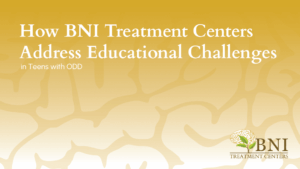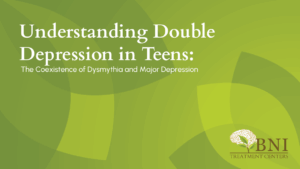Teens have historically gravitated towards pushing boundaries. Experimenting with drugs and alcohol is also not a new development among teenagers. What is new is the clinical research and brain imaging studies that have shed light on the differences between the adult brain and the teen brain, and how those differences impact decision-making, impulsivity, and the effects of drugs and alcohol.
This recent data regarding addiction and the teen brain helps explain why teens tend to make hasty decisions that have lasting consequences. It also serves as a warning to teens, as early drug and alcohol use disorder significantly increases the teen’s risk of developing a substance use disorder in adulthood. An article published in the Society for Prevention Research entitled “Adolescent Brain Development and Drugs,” explains the unique neuroscience of addiction and the teen brain. According to the authors, the teen brain is still in the maturation process where excessive neural connections are being pruned, allowing for more efficient processing of information and complex decision-making later.
Understanding Addiction and the Teen Brain
When teens are faced with peer pressure they may not yet have the capability to properly weigh consequences and sort through pros and cons before making a decision, which can result in risky behaviors. The part of the brain that regulates these executive functions, the prefrontal cortex, is not fully developed yet in teens. Emotions can overwhelm the immature brain functions, which may give way to impulsive behaviors like drug and alcohol use.
Teens may lack the foresight to understand how the choices they make today have the potential to impact their lives negatively for years. Driving under the influence, using illicit drugs such as party drugs or oxycodone, or abusing marijuana can have lasting consequences.
Because it is common for teens to be susceptible to emotional drama and mood swings by nature, the teens who are struggling with social anxiety or depression may be more susceptible to using drugs or alcohol as a means of relaxing in social situations, gaining a sense of confidence that they otherwise might not have. This “self-medicating” of a mood disorder by using a substance to relieve negative emotions can eventually lead to substance use disorder or addiction.
How Drugs and Alcohol Affect the Teenage Brain
The teen brain is impacted more intensely by the effects of drugs or alcohol. This is the result of immature myelination, the fatty substance that insulates brain cells, which isn’t fully developed leaving the neurons more exposed and vulnerable to the effects of the substance. This means that the high experienced will be more pronounced in a teen that it would be in an adult, whose brain cells are fully protected by the coating of myelin.
Drugs and alcohol affect the brain’s reward pathway, which can set in motion the beginning stages of addiction. These pleasurable experiences, the euphoria, the high or rush experienced, are registered by the brain in response to the dopamine released. This sets up a reward response that becomes etched in the teen brain as something to experience again and again.
Preventing Substance Use Disorder Among Teens
Every generation of parents and government leaders seems to make some attempt to control substance use among teenagers. From the “Just say no” slogan of the Reagan administration to the Red Ribbon Week activities initiated in the late 80s, anti-drug coalitions and programs continue to be initiated to help prevent addiction. These public policy type efforts have some impact overall through the messaging, helping kids understand the dangers inherent in drug and alcohol experimentation, but still the problem continues among our youth.
According to the most recent Monitoring the Future survey, and annual report of substance misuse with about 45,000 teens participating, of middle and high school youths, 25% of teens report they had their first alcoholic beverage by age 13. 36% of 12th graders reported using marijuana, and more teens are currently smoking pot than cigarettes. Vaping is now a pressing issue, with over 37% of teens reporting that they vaped in the past year.
Some prevention tips for parents of teens include:
- Keep communication open with pre-teens and teens regarding their social life, friends, social issues, and academic problems. Give them tools to manage their frustration, disappointment, or hurt feelings by offering advice or arranging for a counselor to chat with them.
- Be consistent in your disapproval of any use of drugs or alcohol. Know their friends, their friend’s parents, and partner with the parents to help each other monitor teens.
- Set a positive example for your teen by not abusing alcohol or drugs. They take their cues from parents.
- Keep the teen actively involved and engaged in healthy, wholesome extracurricular activities. Stress healthy lifestyles and the importance of fitness.
- Encourage the teen to become involved in volunteer activities or charitable events.
- Have consistent rules and clearly articulated consequences for any drug or alcohol use.
- Be aware of changes in your teen’s appearance, behavior, group of friends, academic performance as these can indicate substance use disorder.
Addiction Treatment for Teens
If the teen has developed a problem with drugs or alcohol they should receive professional treatment as early as possible. The longer the issue is ignored the more entrenched the problem with become. If the substance misuse has escalated to the point that the teen requires rehab, they may first need to complete a medically supervised detox and withdrawal. Once that is completed, addiction treatment can commence, which is usually a 1-3 month comprehensive program. A teen rehab program will provide a safe, supportive environment that involves psychotherapy, group therapy, family-focused therapy, and addiction education classes.
BNI Treatment Centers Provides Leading Addiction Recovery for Teens
BNI Treatment Centers is a residential mental health treatment program for teens located in Los Angeles. CA. The program treats a variety of mental health disorders, including providing medical detoxification and addiction treatment for teens ages 12-17. The program is highly effective due to the diverse menu of treatment elements from which to design a customized treatment plan for each individual client. This integrated approach keeps the teens engaged and actively participating in their recovery process. For more information about the program, please contact BNI Treatment Centers today at (888) 522-1504.




